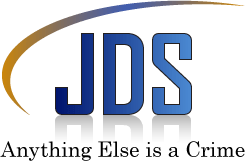Unlocking the Power of eDiscovery
The legal landscape is in a constant state of evolution, and with the advent of technology, one of the most significant transformations has been the integration of eDiscovery into legal proceedings. As the volume of electronic information continues to grow exponentially, traditional methods of discovery are no longer sufficient. This has given rise to advanced tools and techniques, such as DiscoveryDialog – a game-changer in the realm of legal proceedings.

The Significance of eDiscovery
Before delving into the intricacies of DiscoveryDialog, it’s crucial to understand the broader context of eDiscovery. Electronic discovery, or eDiscovery for short, refers to the process of collecting, preserving, analyzing, and producing electronically stored information (ESI) during legal proceedings. This encompasses a wide range of data, including emails, documents, databases, and more.
The significance of eDiscovery cannot be overstated. In an age where the majority of business communication and documentation is digital, the ability to efficiently and accurately gather and present electronic evidence is paramount. Failure to do so can result in adverse legal consequences.
Challenges in Media Management for The Dialog
Traditional eDiscovery methods often rely on keyword searches and manual review of documents, which can be time-consuming, error-prone, and costly. Moreover, as data volumes increase, these methods become increasingly inefficient. Human reviewers may miss relevant information, leading to incomplete discovery or the inadvertent production of privileged documents.
Introducing DiscoveryDialog
This is where DiscoveryDialog comes into play. It represents the pinnacle of innovation in eDiscovery, offering an advanced solution to the challenges posed by traditional methods. At its core, DiscoveryDialog is a system that leverages the power of artificial intelligence (AI) and natural language processing (NLP) to streamline the eDiscovery process.

How DiscoveryDialog Works
The key to DiscoveryDialog’s effectiveness lies in its ability to engage in a dialogue with the legal team. Here’s a simplified overview of how it works:
Changing Legal Roles
With the automation of certain eDiscovery tasks, the roles of legal professionals are evolving. While routine document review may become less prevalent, the demand for experts who can harness the power of AI and NLP is on the rise.
Enhanced Decision-Making
By providing predictive analytics and insights, DiscoveryDialog empowers legal teams to make more informed decisions. This can lead to more effective case strategies and potentially favorable outcomes for clients.
Increased Access to Justice
The efficiency and cost-effectiveness of DiscoveryDialog can make the legal process more accessible to a broader range of individuals and organizations. This promotes fairness and equity within the legal system.
Ethical Considerations
As with any technology, the use of AI and NLP in eDiscovery raises ethical questions. These include concerns about privacy, bias in algorithms, and the need for transparency in decision-making processes.
eDiscovery – DiscoveryDialog
In the ever-evolving landscape of the legal industry, embracing technological advancements like DiscoveryDialog is not just a choice; it’s a necessity. This revolutionary eDiscovery system has the potential to reshape the way eDiscovery is conducted, offering unparalleled efficiency, accuracy, and cost savings.
As legal professionals adapt to this new era of AI-driven eDiscovery, they must also grapple with the ethical and societal implications that come with it. Striking a balance between efficiency and ethical responsibility will be a central challenge.
DiscoveryDialog is not just a tool; it’s a symbol of the legal industry’s ongoing transformation. As we look ahead, it’s clear that judicial dialog systems like DiscoveryDialog are here to stay, and they have the power to redefine how justice is delivered in the digital age. Embracing these innovations and addressing their associated challenges will be the key to a more efficient, accessible, and just legal system.
